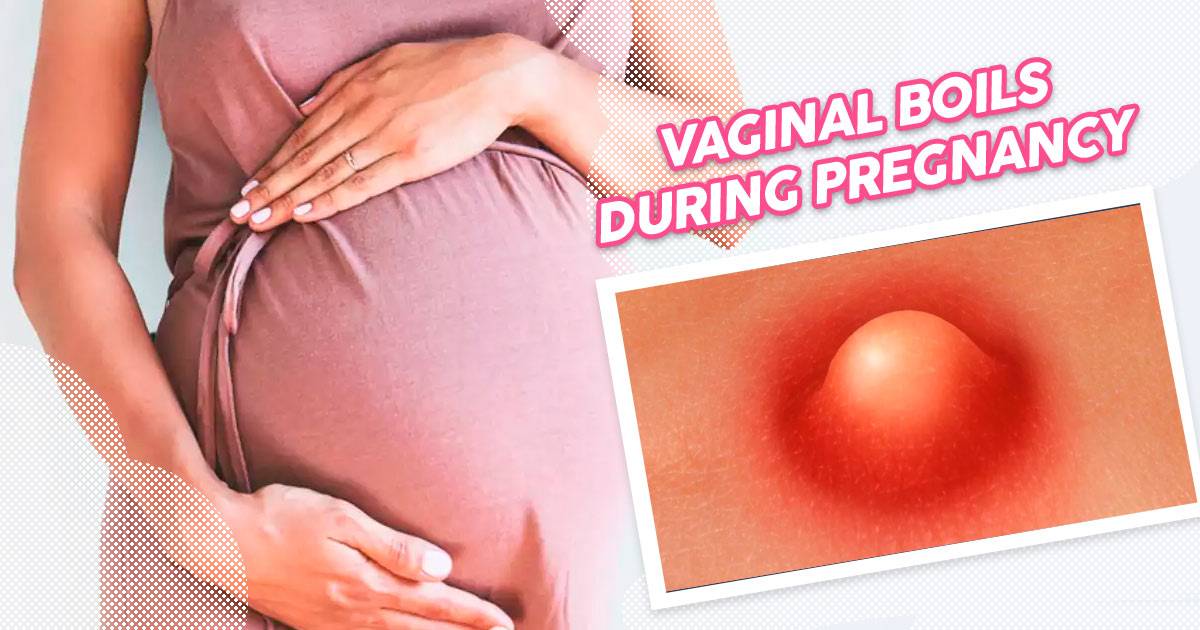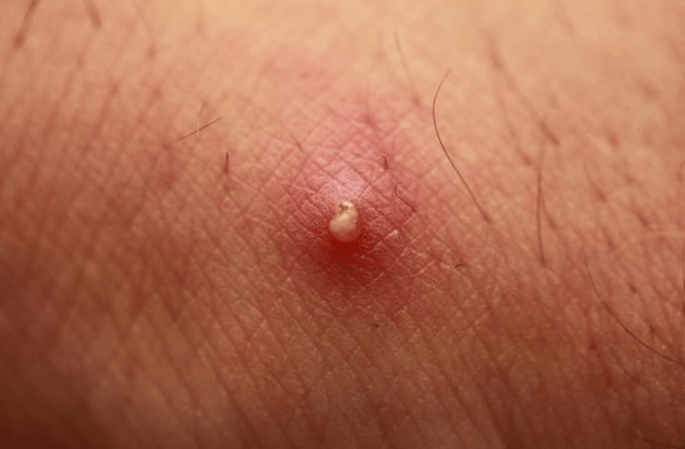Vaginal Boils During Pregnancy: Tips for Management & Prevention

Experiencing vaginal boils during pregnancy is not uncommon, and many expectant mothers wonder, “Why do I get boils when pregnant?” In this article, we’ll explore the causes and solutions for boils while pregnant, including those that may develop on the labia and vulva and even pregnancy boils on the buttocks.
What are Vaginal Boils?
The presence of painful, pus-filled lumps in and around the vaginal area is a common symptom of vaginal boils, which are unsettling to experience during pregnancy. The occurrence of these boils can be attributed to the intricate interplay of physiological changes that accompany pregnancy. Hormonal fluctuations play a significant role in creating an environment conducive to bacterial growth, contributing to the development of boils.
Additionally, the increased blood flow to the pelvic region, a natural consequence of pregnancy, further amplifies the likelihood of boils forming in this sensitive area. The immune system, while crucial for overall health, undergoes a temporary weakening during pregnancy to accommodate the developing fetus. This weakened immune response can make expectant mothers more susceptible to various infections, including those leading to the formation of boils. By understanding these factors, individuals can better grasp why boils may emerge during pregnancy and take proactive steps to manage and prevent them.
Causes of Vaginal Boils During Pregnancy
Here are some reasons why you get boils when pregnant:
- Hormonal Changes: Pregnancy induces hormonal shifts that significantly impact the physiological landscape of the body. These changes extend to the vagina, where alterations in pH balance occur. This shift creates an environment conducive to bacterial growth, ultimately leading to the formation of boils during pregnancy.
- Increased Blood Flow: One notable aspect of pregnancy is the heightened blood flow to the pelvic area. This natural adaptation supports the growing fetus but simultaneously contributes to the development of boils. The increased circulation in this sensitive region provides an ideal setting for the occurrence of these painful lumps.
- Weakened Immune System: To ensure the protection and development of the growing fetus, pregnancy brings about a deliberate weakening of the immune system. While this compromise serves a crucial purpose, it makes expectant mothers more susceptible to infections. Boils, a manifestation of bacterial infections, can thus emerge due to the temporarily weakened immune response during pregnancy.
Why Do I Get Boils When Pregnant? Exploring Specific Areas
Boil on Labia During Pregnancy
The labia, being an inherently sensitive area, is susceptible to the development of boils during pregnancy. The hormonal changes characteristic of this period contribute to an alteration in the vaginal environment, creating conditions conducive to bacterial growth. Additionally, the increased moisture in the genital region, another consequence of pregnancy, further exacerbates the vulnerability of the labia to boils. As a result, expectant mothers may experience discomfort and pain in this intimate area, necessitating a nuanced understanding of the factors at play for effective management.
Boils on Vulva During Pregnancy
The vulva, encompassing the external genitalia, is not immune to the impact of pregnancy-related changes. Hormonal fluctuations and increased blood flow can create an environment conducive to the development of boils in this sensitive region. To effectively manage and prevent boils on the vulva during pregnancy, maintaining proper hygiene practices is paramount. An awareness of preventive measures, including the use of mild, fragrance-free soaps and the avoidance of harsh chemicals, becomes crucial in preserving the health and comfort of the vulva.
Pregnancy Boils on Buttocks
Boils on the buttocks during pregnancy can arise from increased friction and sweat in this region. As the body changes to accommodate the growing fetus, the buttocks may experience heightened levels of moisture and warmth, creating an environment where boils can thrive. To prevent the occurrence of boils on the buttocks, adopting loose clothing becomes pivotal. Combined with good hygiene practices, such as regular cleansing and the use of breathable fabrics, expectant mothers can proactively minimize the risk of developing painful boils in this area, ensuring a more comfortable pregnancy experience.
Treatment Options
To address vaginal boils during pregnancy, including those on specific areas like the labia, vulva, and buttocks, consider the following treatment options:
- Warm Compress: The application of a warm compress emerges as a simple yet effective remedy for alleviating the discomfort associated with boils during pregnancy. By gently applying heat to the affected area, blood circulation increases, promoting the natural drainage of the boil. The warmth not only eases the pain but also aids in reducing inflammation. This easily accessible and non-invasive technique offers a comforting solution for expectant mothers dealing with the challenges posed by painful boils, providing a natural means of relief without resorting to more invasive measures.
- Good Hygiene Practices: Maintaining impeccable hygiene practices is paramount in managing and preventing boils during pregnancy. Using a mild, fragrance-free soap in the genital area helps preserve the delicate balance of the vaginal flora, reducing the risk of bacterial overgrowth that can lead to boils. Avoiding harsh chemicals is equally crucial, as these substances can disrupt the natural protective barrier of the skin. By incorporating these straightforward yet essential hygiene practices, expectant mothers can take proactive steps to safeguard their intimate health, fostering an environment less conducive to the development of boils.
- Over-the-Counter Pain Relief: When confronted with the discomfort of boils during pregnancy, seeking relief through over-the-counter pain relievers becomes a viable option, provided it is done under the guidance of a healthcare provider. Non-prescription medications such as acetaminophen can help manage pain and reduce associated symptoms. However, pregnant individuals need to consult with their healthcare professionals before using any medication, ensuring that the chosen pain relief method aligns with their unique health considerations and the specific stage of pregnancy. This cautious approach allows expectant mothers to address pain effectively while prioritizing the safety and well-being of both themselves and their developing baby.
Preventive Measures
In addition to treatment, adopting preventive measures is essential.
- Gentle Cleansing: Opt for mild, fragrance-free soaps while avoiding harsh cleansers and douches to preserve the natural balance of the vaginal flora. This gentle approach minimizes the risk of bacterial overgrowth, a critical factor in preventing boils during pregnancy.
- Loose Clothing: Choose loose, breathable clothing to reduce friction and enhance airflow, particularly in sensitive areas. This simple practice helps create an environment less conducive to the development of boils during pregnancy, prioritizing both comfort and intimate health.
- Regular Prenatal Check-ups: Committing to regular prenatal check-ups is vital for proactive healthcare during pregnancy. These visits not only monitor fetal development but also play a crucial role in the early detection and management of potential issues, including boils. Healthcare providers offer timely guidance on preventive measures, ensuring a comprehensive and well-managed pregnancy experience. This proactive approach empowers expectant mothers with the knowledge and support needed to navigate their unique healthcare needs efficiently.
Understanding Having Boils While Pregnant
By understanding the causes of vaginal boils during pregnancy and implementing effective treatment and preventive measures, expectant mothers can navigate this aspect of their journey with confidence. Remember, always consult with your healthcare provider for personalized advice and guidance tailored to your unique situation.

